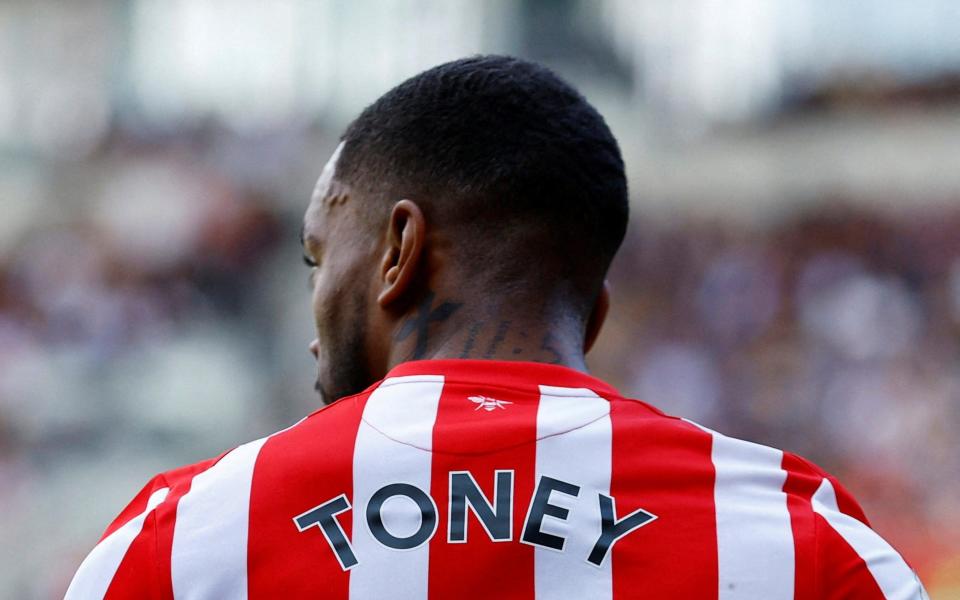
Ivan Toney, the Brentford and England striker, had a gambling addiction diagnosed after making a series of bets on his own teams, including 13 bets on his club to lose, and on himself to score.
Toney was last week banned from football for eight months after he admitted to 232 breaches of the Football Association’s betting rules, and the written reasons behind that suspension have now been released.
An independent commission found that, among hundreds of bets, Toney placed 16 bets on his own team to win, 13 bets on his own team to lose and 15 bets on himself to score.
Of the 13 bets on his own team to lose, between August 2017 and March 2018, 11 were on Newcastle United to lose while Toney was on loan at another club. He also made two bets on Wigan Athletic to lose to Aston Villa while he was a Wigan player, but was not part of the squad.
The commission found that there was no evidence that Toney influenced his own team to lose, or was even in a position to do so, when he placed bets on them.
Toney made 15 bets or instructions to bet on himself to score in nine different matches, and also made 16 bets on his own team to win 15 different matches. He played in 11 of those 15 games.
Toney had a gambling addiction diagnosed by a psychiatric expert, whose evidence was accepted by the commission.
Largely as a result of the diagnosis, the commission made a “significant reduction” of three months to Toney’s suspension.
The commission said that Toney has now stopped all gambling on football, although he continues to bet on other sports and to play casino games. It added that Toney is “determined to address his gambling problem with therapy at the conclusion of this season”.
The FA pushed for Toney to be suspended for a minimum of 12 months and also invited the commission to impose the suspension from the beginning of the next season, rather than immediately, due to the upcoming summer break.
The commission did not accept that premise, saying it was not appropriate to “tailor a period of suspension around the ability of a player to actually play football”.
Broaden your horizons with award-winning British journalism. Try The Telegraph free for 1 month, then enjoy 1 year for just $9 with our US-exclusive offer.